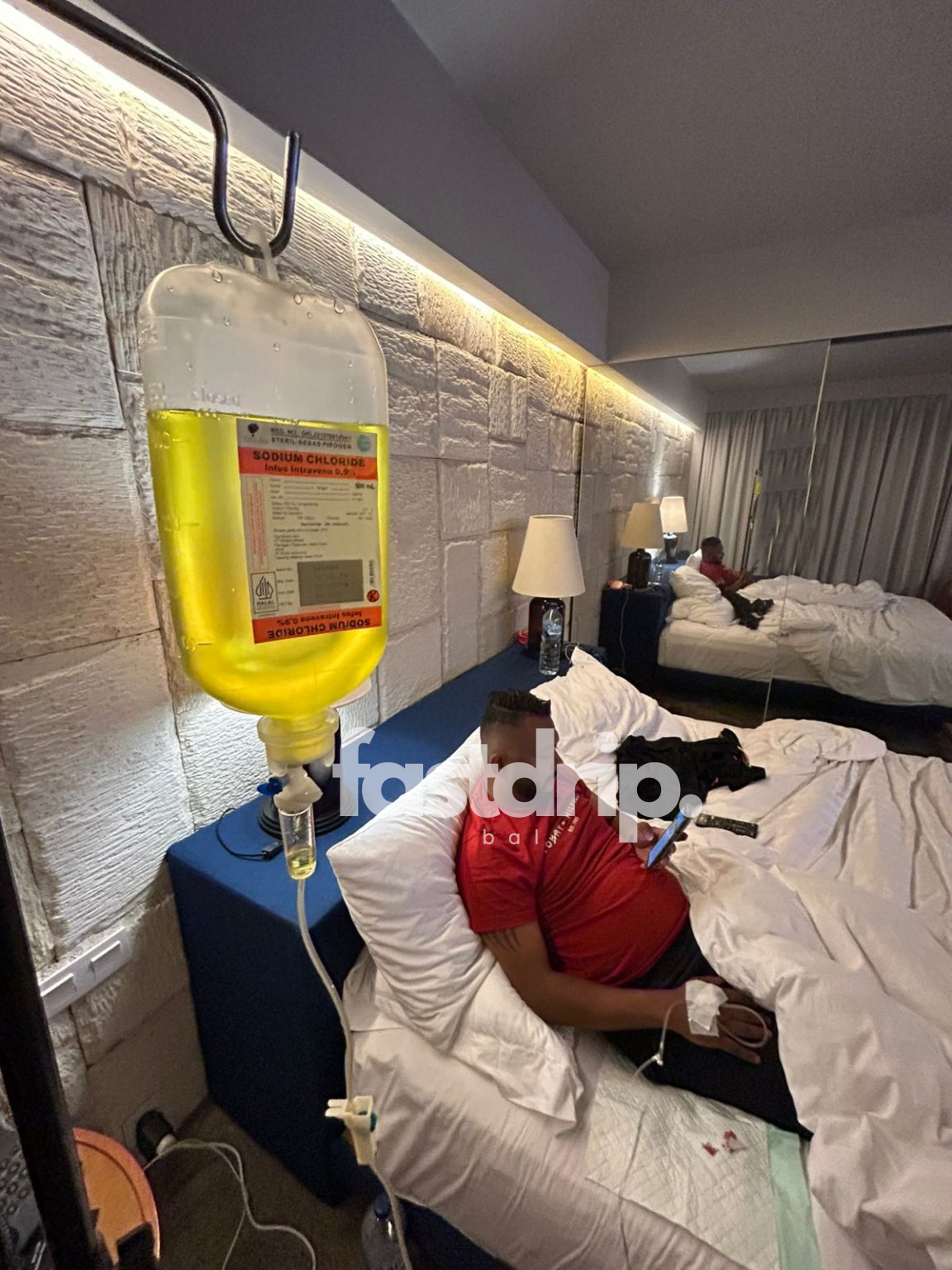Preventing Bali Belly: Essential Tips for Touristssss
Bali, Indonesia, is a dream destination for many travelers, known for its breathtaking beaches, rich cultural heritage, and lush landscapes. However, one common issue that can affect tourists is Bali Belly—a term used to describe gastrointestinal distress caused by food or water contamination. Symptoms typically include diarrhea, nausea, vomiting, and stomach cramps, and while it’s usually not serious, it can certainly disrupt your holiday. The good news is that there are several effective strategies to prevent Bali Belly and enjoy your vacation without the discomfort. In this article, we will provide tips on how to protect yourself from Bali Belly and ensure a healthy stay in Bali.
“The prevention methods explained by the FastDrip team of doctors are very clear and easy to understand”satisfied client
1. Drink Bottled or Filtered Water
One of the primary causes of Bali Belly is consuming contaminated water. While the tap water in Bali is not safe for drinking, most hotels, restaurants, and cafes will provide bottled water or filtered water for their guests. Always avoid drinking tap water, including when brushing your teeth, and opt for bottled water or water that has been properly filtered.
To further reduce the risk, ensure that the seals on bottled water are intact before opening. If you’re traveling to remote areas, consider purchasing a portable water filter or water purification tablets as a precaution.
2. Be Cautious with Street Food
Bali’s vibrant street food scene is one of the island’s main attractions, offering a variety of delicious local dishes. However, eating from street vendors can sometimes lead to foodborne illnesses if proper hygiene practices aren’t followed. While many street food vendors serve fresh and tasty meals, it’s important to be mindful of the cleanliness of the stall and the food preparation.
Here are a few tips when eating street food:
- Choose vendors with a high customer turnover, as this indicates that the food is freshly prepared.
- Ensure the food is cooked thoroughly and served hot.
- Avoid foods that are left exposed to the open air for too long, such as salads or pre-cooked meats.
- Make sure the vendor uses clean utensils and has a clean environment for preparing food.
3. Wash Hands Frequently
Proper hand hygiene is one of the most effective ways to prevent the spread of bacteria and viruses. After using public restrooms, handling money, or touching surfaces in crowded places, always wash your hands with soap and clean water. If soap and water are unavailable, carry hand sanitizer with you to clean your hands on the go. This simple practice can significantly reduce your risk of infection and protect you from Bali Belly.
4. Choose Safe Eating Venues
When selecting restaurants and cafes, it’s important to choose places that follow proper food safety practices. Opt for well-established venues that are known for their quality and hygiene standards. Many popular restaurants in tourist areas adhere to strict cleanliness regulations, making them safer choices.
If you’re unsure about the cleanliness of a restaurant, check online reviews and ask locals or fellow travelers for recommendations. A clean, reputable restaurant is less likely to serve contaminated food.
5. Avoid Raw or Undercooked Foods
Raw foods, such as salads, seafood, and meats, are more likely to carry harmful bacteria and parasites that can lead to foodborne illnesses. While Bali’s cuisine offers a range of fresh fruits and vegetables, it’s advisable to avoid consuming raw or undercooked items unless you are certain they have been properly washed or prepared.
If you do choose to eat fruits or vegetables, consider peeling them yourself to reduce the risk of contamination. Stick to freshly cooked food to minimize exposure to harmful pathogens.
6. Take Probiotics Before and During Your Trip
Probiotics are beneficial bacteria that can help maintain a healthy gut and improve digestion. Taking a daily probiotic supplement before and during your trip to Bali can strengthen your digestive system and enhance its ability to resist harmful bacteria that may cause Bali Belly. Probiotics can be found in supplements, as well as in foods like yogurt, kefir, and fermented vegetables.
Consult your healthcare provider before starting any supplements to ensure they are suitable for your individual health needs.
7. Avoid Ice and Cold Drinks
While cold drinks and ice may seem refreshing in Bali’s tropical climate, they can sometimes be a source of contamination. Ice cubes made from untreated water or water that has been exposed to bacteria can cause gastrointestinal issues. To avoid this risk, opt for drinks without ice, or ask for beverages to be served without it. Additionally, consider avoiding overly sugary or creamy drinks, as they may be harder to digest in a warmer climate.
8. Travel with Medications for Digestive Health
Even with the best preventive measures, Bali Belly can occasionally affect travelers. It’s a good idea to carry over-the-counter medications that can help manage symptoms of upset stomachs, diarrhea, or nausea. Medications like anti-diarrheal tablets or oral rehydration salts can help alleviate discomfort and prevent dehydration.
If you experience severe symptoms such as prolonged vomiting, high fever, or blood in your stool, it’s important to seek medical attention immediately.
9. Stay Hydrated
Dehydration is a common complication of Bali Belly. To prevent this, make sure to stay hydrated by drinking plenty of safe water throughout the day. Coconut water is also a natural and hydrating option, providing electrolytes that can help replenish your body’s fluids.
If you do experience mild symptoms of Bali Belly, continue to drink fluids to stay hydrated and help your body recover. Oral rehydration solutions (ORS) can be useful in restoring lost electrolytes.
Read : Pain-Relieving Infusions for Tattoo Patients in Bali with fastdripbali : A Trend in Tattoo Aftercare
Conclusion
Bali Belly is a common concern for many tourists visiting Bali, but with the right precautions, it can often be avoided. By drinking safe water, being cautious with street food, practicing good hand hygiene, and taking proactive steps to support your digestive health, you can minimize the risk of gastrointestinal distress and enjoy a healthy, worry-free vacation. While Bali Belly is usually a temporary condition, staying informed and prepared will help you make the most of your time on this beautiful island.









